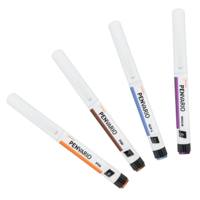- In 2018, Nemera developed a new disposable pen injector for chronic care treatments.
- The initial design used POM and ABS, but concerns arose over formaldehyde emissions.
- Bormed™ HG820MO and RF825MO were chosen for their performance and sustainability.
- The switch reduced the device's carbon footprint by 20% compared to the POM/ABS version.

Background
In 2018, Nemera, a leader in drug delivery device manufacturing, embarked on developing a new disposable pen injector platform for chronic care treatments like diabetes. The goal was to create a versatile, multi-dose device that was easy for patients to use independently.
Challenges
The initial design used polyoxymethylene (POM) and acrylonitrile butadiene styrene (ABS), common in medical devices but problematic due to formaldehyde emissions from POM. Nemera sought alternatives that matched mechanical performance and met regulatory standards while reducing the carbon footprint and maintaining cost-effectiveness.
Solution
Nemera partnered with Borealis, selecting two polypropylene (PP) grades from the Bormed™ portfolio: Bormed™ HG820MO for its high stiffness, suitable for structural components, and Bormed™ RF825MO for its optical clarity, important for the cartridge holder. These materials supported efficient, high-volume production and reduced the device's carbon footprint by 20% compared to the POM/ABS version.
Benefits
The switch to Bormed resins allowed Nemera to meet safety and environmental targets without compromising performance or production efficiency. The optical properties of Bormed™ RF825MO enabled the introduction of color-coded push buttons, aiding patients in distinguishing between different drugs and applications. The new pen injector platform is now commercialized, receiving positive feedback and no reported complaints. Following this success, Borealis materials are being considered for other Nemera platforms, fostering a long-term collaboration focused on innovation and sustainability.

